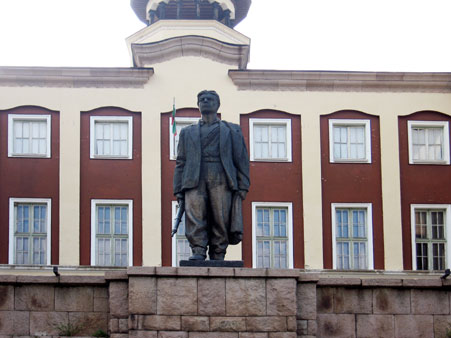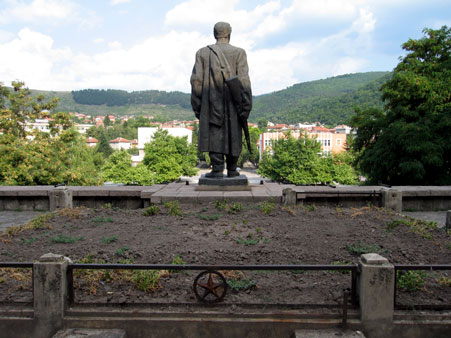 |
 |
 |
 |
We make a quick visit to the House of Culture—which is closed—because of the monument in front of it. Every small town and almost every village of any size has its monuments (rather than memorials, although they may function as both), many of them on a relatively large scale. I’m slowly getting a feeling for the Bulgarian attitude to Russia, the mind set that—until recently—has allowed the Russians to assume a large part of the kudos for Bulgaria gaining their independence in the 19th century as well as its liberation from the Nazis in 1945. Although Slavic ethnicity, Orthodoxy and the Cyrillic alphabet bind the two countries together culturally, there is no doubt that Bulgarian independence came about primarily because of the global political and geographical ambitions of Russia—pushing back the Ottoman Empire to gain access to the Mediterranean Sea—rather than as a selfless act of brotherly aid. |
|
In the second case, the revolutionary changes conflated Russia with the Communist Party, thus undervaluing Bulgarians of other political persuasions in post-World War II historical narratives. In talking to M, however, I detect a difference in his attitude between Russians as a people and ‘Russia’ [USSR] as a political power. This might help to explain the absence of monuments dedicated to the communist party and its leaders, including Marx, Lenin & Co, while there are nevertheless many memorials to Russian leaders and soldiers who participated in (re)forming the Bulgarian nation so there are probably more Russophile monuments here than in all the other ex-Warsaw Pact countries put together.
|
 |
|
 |
|
 |